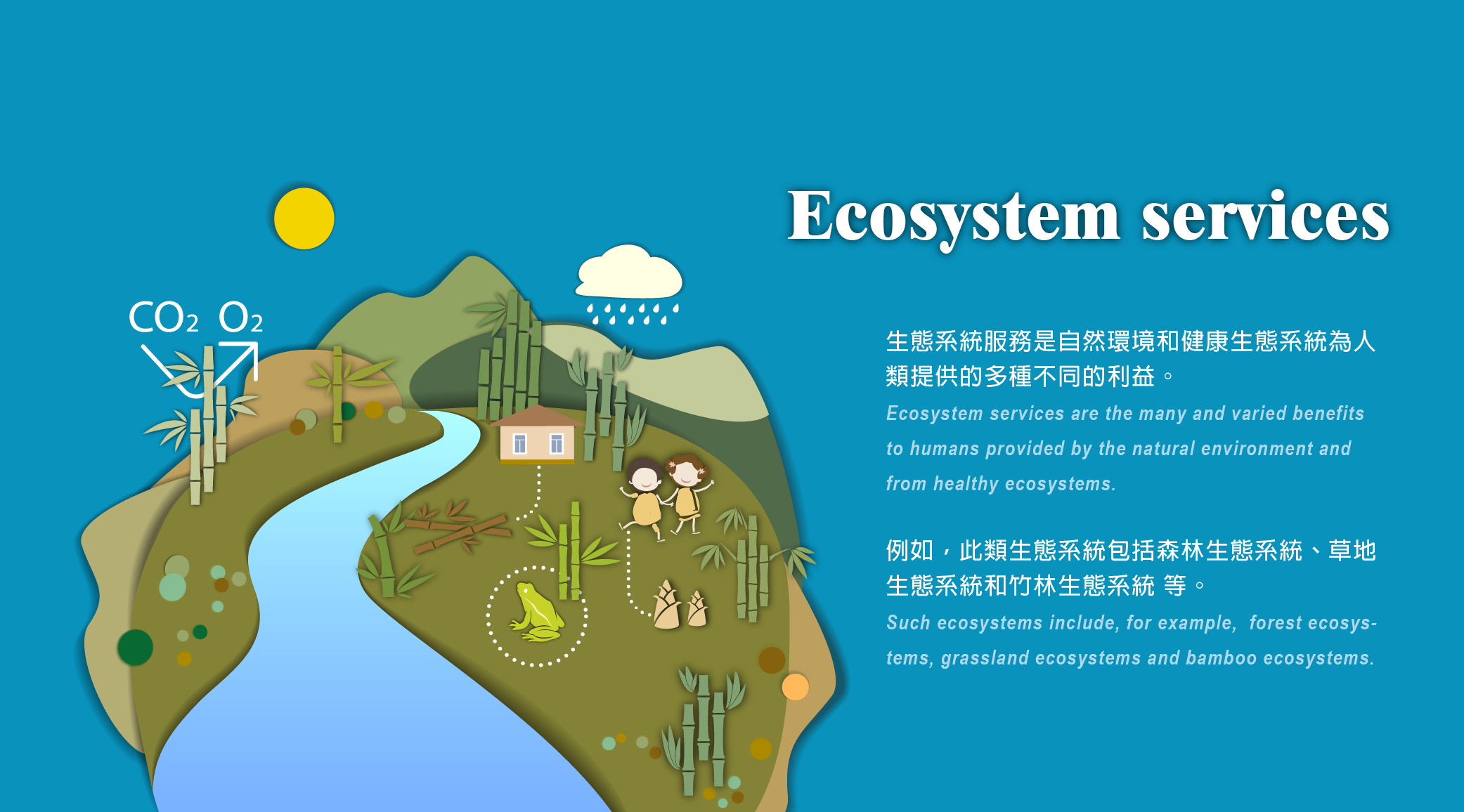What are ecosystem services? Ecosystem services refer to the benefits that humans obtain from ecosystems, including direct and indirect benefits. For example, in forest ecosystems, people can directly obtain wood, food, drinking water, etc. At the same time, forests quietly provide atmospheric regulation, water purification, nutrient circulation, leisure and entertainment, and other functions that are beneficial to humans but easily overlooked. Because these functions are neglected, humans often lose sight of one thing while acquiring tangible materials (such as cutting down forests), thus destroying the ecological environment and causing the failure of ecosystem services.
What is the relationship between ecosystem services and the economy? It is easy to notice that the economic value of tangible products, such as wood production and processing, are all related to economic activities. So do the intangible services of the ecosystem also have economic value? Over the past half century, faced with more and more disaster losses caused by the failure of ecosystem services, humans have gradually realized that the intangible services provided by the ecological environment are indispensable to human survival, and have tried to concretize these values and incorporate them into the economy. Scope of activities. Although humans have no right to purchase or own nature, the economic order has long influenced the behavior of human groups. Using economic means to solve ecological problems - making the value of the ecosystem more concrete, incorporating the value of the ecosystem into the cost of production and life, thereby blocking the behavior of free use and destruction of the ecological environment - may still be the current solution. It is the most important and effective means to solve environmental problems and ensure human survival.
On the other hand, people's thinking about economics continues to evolve. After the 1960s, people began to reflect on the linear production and consumption model since the Industrial Revolution - after extracting raw materials from the natural environment, processing them into commodities, and then discarding them directly after they were purchased and used - this model will cause two major crises. First, natural resources are exhausted and it will become increasingly difficult to obtain resources. Second, problems such as garbage disposal and pollution will lead to the deterioration of the living environment. As a result, the concept of "circular economy" began to take shape and gradually gained attention, and people began to think about how to reuse waste. Or it should be said that "there are only resources placed in the wrong place, there is no real waste". When materials can be continuously recycled and utilized, the contradiction between economic development and environmental impact can be resolved.
As one of the branches of forest ecosystems, bamboo forests provide some similar functions to natural forests, artificial forests, grasslands, farmland and other ecosystems, but also have some special features. In addition to producing bamboo materials, what other ecosystem services do bamboo forests provide? This article will briefly introduce the value that bamboo forests create for mankind. The bamboo industry has a long history in human civilization, and in recent years, it has been increasingly valued internationally as a highly anticipated "renewable biological resource". What potential does bamboo have in the concept of "circular economy"? ? This article will also briefly introduce its possible development.
Ecosystem services and economic value of bamboo < Previous ,Next > 2.The history of human life as friends of bamboo

